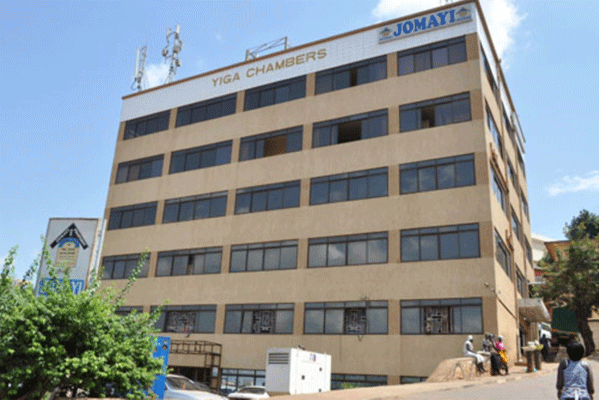Prime
Mobile money competition stiffer as bank unveils related platform

Bank of Africa general manager - business development Claver Serumaga (L) addresses journalists at the launch of the Mobile Wallet platform. Right is Ms Immaculate Asiimwe, the e-banking manager. PHOTO BY MICHAEL KAKUMIRIZI
What you need to know:
Product available for both account and non-account holders.
Kampala- Bank of Africa has unveiled a mobile banking platform in a bid to tap into the increasing use of mobile money services as a transaction medium.
Dubbed Mobile Wallet, the product will enable Bank of Africa (BOA) account and non-account holders to transact/send and receive money using their mobile phones and Automated Teller Machines (ATMs), respectively.
Unlike banks like Crane which partnered with MTN mobile money to allow its customers withdraw cash from their mobile money accounts using the bank’s ATMs, the BOA platform, which also allows for card-free ATM withdrawals, is entirely independent of any telecommunication networks’ mobile money platforms, despite using mobile phones to send and receive transaction messages.
Speaking at the unveiling ceremony in Kampala last week, the bank’s acting managing director, Mr Arthur Isiko, said the innovation is one of the easiest ways to get more people integrated in the financial system.
Despite having an adult population of about 18 million, the population of banked people in Uganda is estimated at only 3 million, yet many people have multiple bank accounts. This compares with the mobile money platform whose customers were estimated at 8.9 million in 2012, with a total of Shs11.7 trillion wired through the platform.
Mr Isiko said: “Mobile telephony has become an important tool to drive financial inclusion and we anticipate that with this innovation, more Ugandans will be brought into the financial system thereby deepening financial inclusion.”
Mr Olumuyiwa Asagba, the Interswitch East Africa chief executive officer, had earlier said failure by banks to swiftly adopt electronic money payment systems made them lose a significant market share to mobile money operators.
How it works
Registration: A customer registers with Bank of Africa (BOA), with the mobile phone number as the account number which is managed via a mobile phone. This account is, however, independent of any mobile money platform.
The customer will then be required to load money onto his mobile wallet/phone from any of the 34 BOA branches countrywide or ATMs.
Recipient: The recipient will receive a notification of the transaction showing the amount received and a reference number to be used to withdraw the money from any BOA ATM.
The recipient will be required to call the sender and get the PIN, which must be entered to authorise the withdrawal.
Bank charges cheaper than those of telecoms
Bank of Africa’s new platform is expected to heat up competition with telecom companies, which charge relatively higher fees for mobile money transactions, compared to BOA’s average of Shs350 per transaction.
Telecoms, for instance, charge between Shs500 and Shs70,500, depending on the amount being transferred and whether the recipient is a registered user or not.
Unlike mobile money where a fee is charged for both sending and withdrawing, with the BOA Mobile Wallet, it’s only the originator of the transaction who pays the fee, thereby making it the cheapest mobile money option in the market today.
Mr Claver Serumaga, the bank’s general manager-business development, said the small fee is an operational charge that seeks to enable the company to continue providing the service and improve convenience.
Mr Isiko said the innovation, which is the latest in a string of moves by major financial institutions toward total mobile banking, is inevitable as it is something commercial banks should have done so many years ago.




